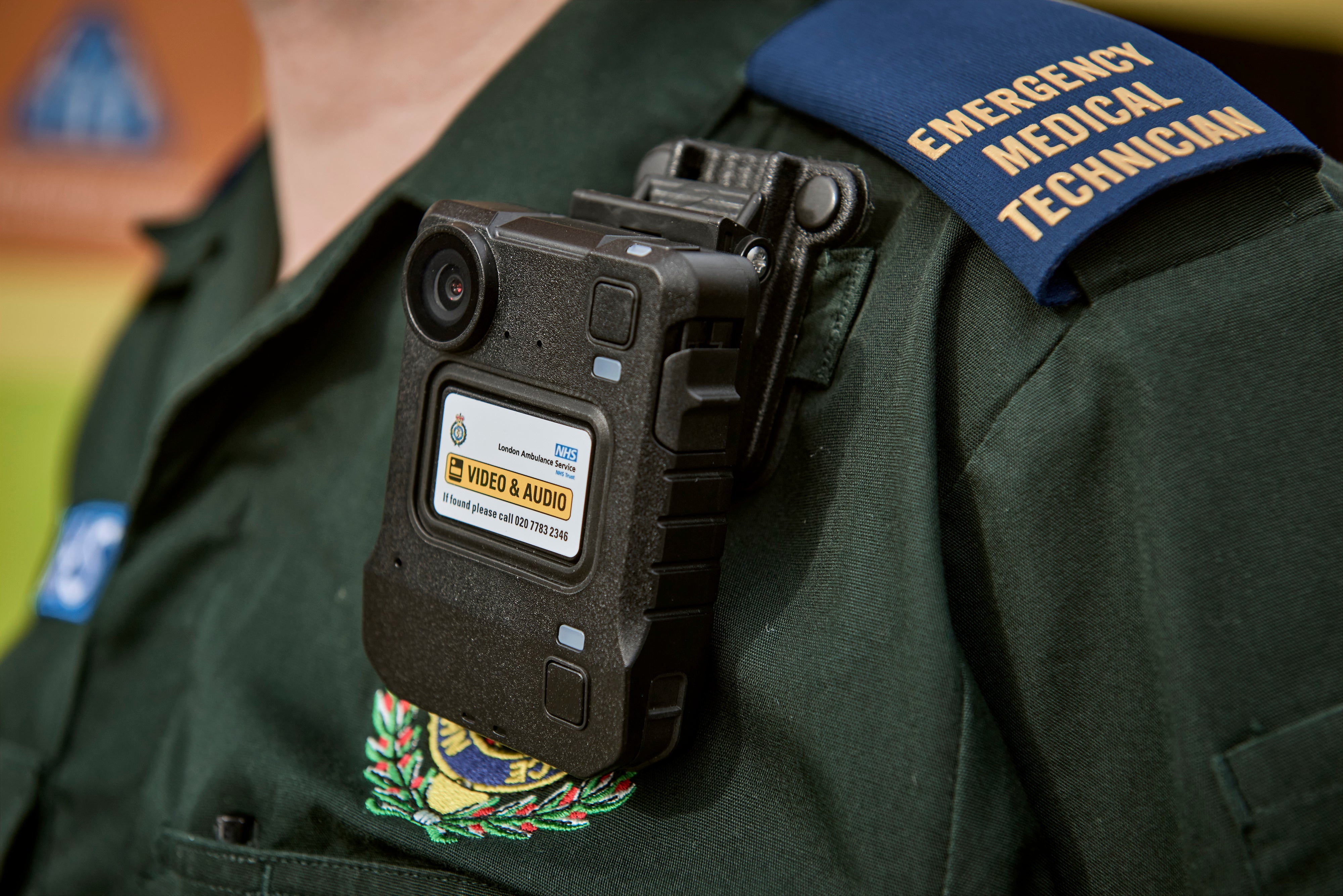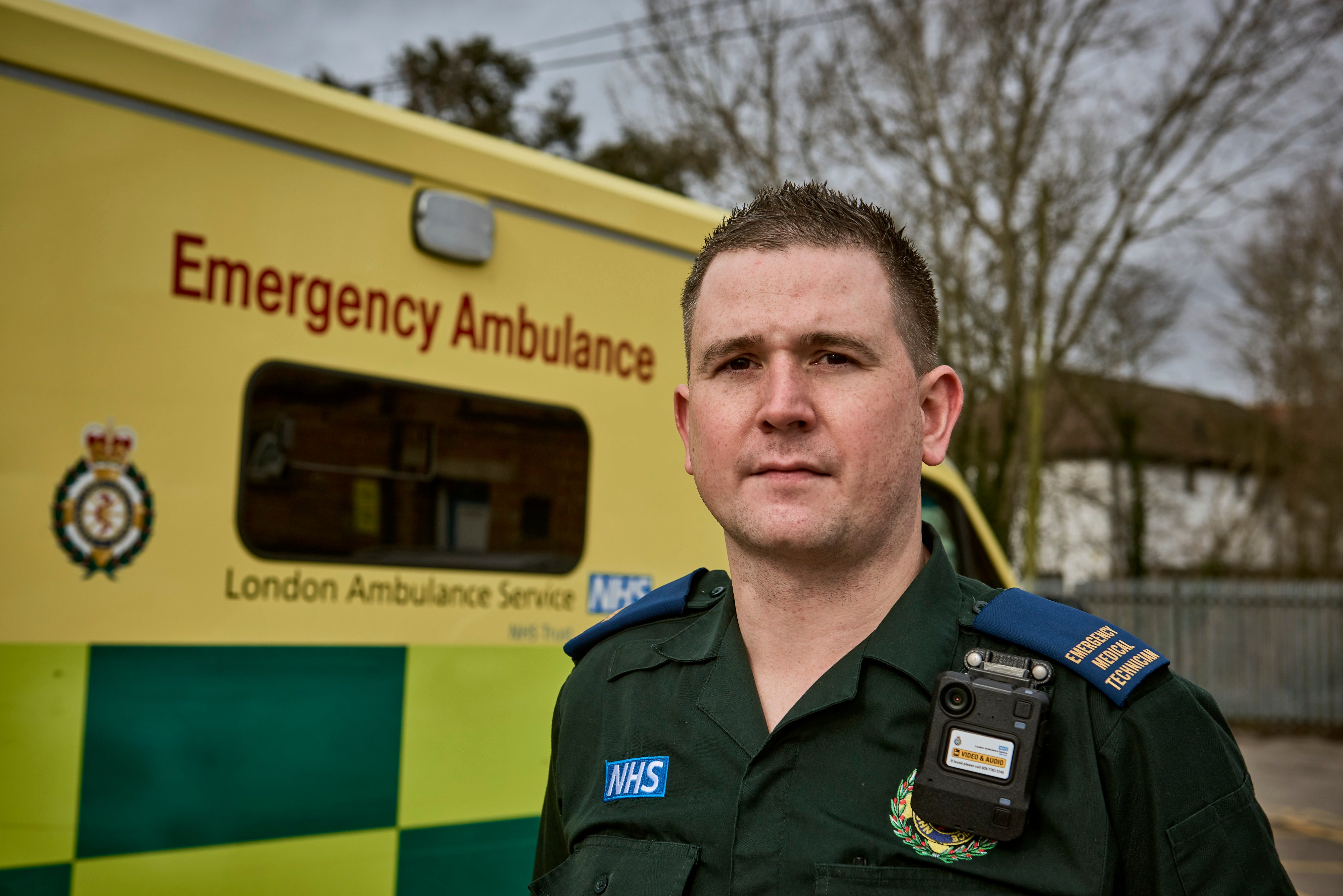All ambulance crews to wear body cameras in bid to reduce attacks, NHS England says
Trials of the devices already underway in London, West Midlands and northeast

Thousands of paramedics are to be given body cameras to wear amid a surge in attacks on ambulance staff.
Crews in every region of England will be provided with the technology as part of an NHS crackdown on members of the public physically assaulting staff during emergency callouts.
Data released by NHS England on Wednesday showed there were 3,569 instances of ambulance staff being attacked by the public last year – a rise of nearly one-third (30 per cent) on five years ago. The staff survey showed this figure was 2,703 in 2016-17.
Trials of body-worn cameras have been underway in London, the West Midlands and the northeast for several months and the NHS will now roll out the cameras to crews in all 10 ambulance trusts across England – three years ahead of the target set out in the NHS long term plan.
A spokesperson for NHS England told The Independent every ambulance would have at least one crew member fitted with a camera, but if there were multiple crew from a single vehicle attending a callout not all staff would necessarily be wearing one of the devices.
Medics will be able to press a button to start recording if patients or the public become aggressive or abusive and the footage can be shared with police to aid with prosecution.
Prerana Isaar, chief people officer for the NHS, said: “Every member of our dedicated and hardworking NHS staff has the fundamental right to be safe at work and it is our priority to eliminate violence and abuse, which we will not tolerate.
“As well as reducing the number of incidents towards our staff, these cameras are a vital step towards ensuring our people feel safe too.
“The fact that we are rolling them out to all 10 ambulance trusts three years ahead of schedule is testament to our commitment to tackling this problem and is nothing less than our staff deserve.”
The NHS said initial findings from the trials showed the cameras made staff feel safer and helped to de-escalate difficult situations.
Darren Green, clinical service manager at North East Ambulance Service, said: “Staff safety is one of our highest priorities. If we are unable to protect our staff, we are unable to provide a service that’s fit for purpose for the public we serve.
“The availability of body worn cameras for our staff is something that we have championed for a long time and so we are delighted to have led the trial to help implement them nationally.
“Nobody comes to work to be abused, but especially not by the people they have come to help. Sadly, these cameras are needed now more than ever.”
Gary Watson, an emergency crew member with the London Ambulance Service, has been wearing a body camera as part of a trial that launched this year at four ambulance stations in north and south London.

Croydon-based Mr Watson was assaulted by a drunk patient in January 2018. He suffered a torn ligament and serious injuries to his face, throat and neck, while two other medics were also injured. A man was convicted, receiving a suspended sentence.
Mr Watson said: “These cameras are needed, and wearing one makes me feel safer. They act as a deterrent and will also help provide evidence if there is an attack.
“We go to work to help people, not to be assaulted. It’s disgusting that a minority think it’s OK to behave in such a violent way.”
The London Ambulance Service revealed to The Independent earlier this year that there had been an increase in physical assaults. Attacks jumped from 468 in the financial year 2018-19 to 625 in the year 2019-20, a 34-per-cent rise.
By the end of January in the latest financial year, the number of attacks had already hit 529.
This included kicking, punching, headbutting, biting and spitting. There have also been 31 assaults with weapons.
Changes in the law in 2018 mean anyone found guilty of attacking emergency workers or volunteers can be jailed for 12 months, while those guilty of more serious cases of assault can face two years in prison.
Join our commenting forum
Join thought-provoking conversations, follow other Independent readers and see their replies
Comments
Bookmark popover
Removed from bookmarks